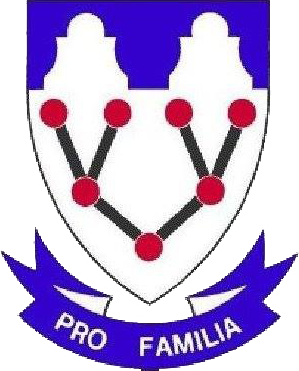Inventory of the Archives of the Court of Justice of the Cape Colony,1652 - 1843 (inventory 1/2)
The Court of Justice dealt with judicial matters, and contains minutes of the court, records regarding civil and criminal cases, appeal cases, estate papers, contracts, declarations, attestations and inquests. This section contains transcriptions, and in some cases images of, selected documents from this so-called 'CJ' series. Transcriptions and images will be added as they become available.
If you feel you can contribute to this project with images or transcriptions, or have any feedback, comments or suggestions, please contact one of our website managers: Corney Keller or Richard Ball.
Biographical History
The Court of Justice at the Cape was established in 1656. Prior to this date judicial matters were dealt with by the Council of Policy but by a resolution of 28 October 1656 the latter body decided that when it sat as a court of justice and as a military court it was to consist of the commander, five members and a secretary. In 1657 the free burghers obtained representation in the court in cases in which burghers were concerned. In 1685 provision was made for the court to consist of the governor, vice - governor and eight members, the secretary having no voice in the proceedings. Initially, two of the members were burgher councillors. Until 1734 the governor acted as president of the court. In 1786 the composition of the court was altered by having six company's servants and six burgher councillors under the presidency of a member of the Council of Policy. In 1792 the secretaries of the Council of Policy and Court of Justice were respectively appointed notaries public, from which date notaries were regularly admitted by the government to practice before the court until 1858 when they were admitted by authority of the Supreme Court. In 1797 Lord Macartney decreed that the court should consist of a president, the fiscal and five ordinary members. The title of president was changed to chief justice in 1812.
Until 1795 the Court of Justice was an appeal court to the inferior courts and appeal from its sentences had to be made to the Court of Justice at Batavia. This ceased at the first British Occupation until 1797 when the governor was vested with an appellate jurisdiction in cases exceeding £200 in dispute. A further appeal lay to the king - in - council where the amount was over £500. In 1803 appeals had to be carried to the National Supreme at The Hague and after 1806 the same procedure was re - established as in 1797. From the members of the court, commissioners (Heeren Gecommitteerden) were appointed before whom all transfers of landed property, mortgage bonds, etc. were passed. This body also acted in civil cases by taking evidence, making investigations and attempting to solve cases before bringing it before the full court.
When the court was remodelled in 1786 a board called the College of Commissioners of the Court of Justice (Commissarissen uit den Raad van Justitie) was established. This board replaced the Burgher Council and generally the commissioners' duties were of a municipal nature. On 31 January 1796 the college was abolished, its duties being assigned to a new body, the Burgher Senate.
Until 1811, Cape Town was the only seat of the criminal court but in this year a Circuit Court was established to try cases in the country districts.
Custodial History
The records in civil and criminal cases are fairly complete, commencing prior to the establishment of the Court of Justice and containing the minutes of the court, papers presented to the members, petitions, affidavits and papers connected with each case. The series Notarial and other documents prepared before or received by the Court of Justice includes wills, inventories, powers of attorney, contracts, declarations, attestations, certificates and inspections of persons who died suddenly, who were wounded or drowned. The documents of the Court of Appeal, 1807 - 1827 originally described with the archives of the Court of Justice, have been transferred to the archives of the Governor, the new reference numbers being indicated in the inventory. The archives of the Fiscal, such as exist, are to be found described together with the archives of the Attorney - General of the Cape (inventory 1/19).
Division of subordinate components
Court of Justice, Cape Town
I Criminal Section (CJ 1-821)
II Civil Section (CJ 822-2484a)
III General (CJ 2845-3202)
Commissioners from Council
I Proceedings in Civil and Criminal Cases (CJ 3215-3362)
II General (CJ 3365- 3384)
Circuit Court (all records after 1806)
I Report of Proceedings of Circuit Court
II General
Miscellaneous Documents
I Miscellaneous Draft Minutes, Records of Proceedings and Annexures 1758 - 1827 (CJ 3600-3630)
II Miscellaneous Court Records (CJ 3635-3661)
III Varia
Source: TANAP: The Archives of the VOC
- Hits: 32232

